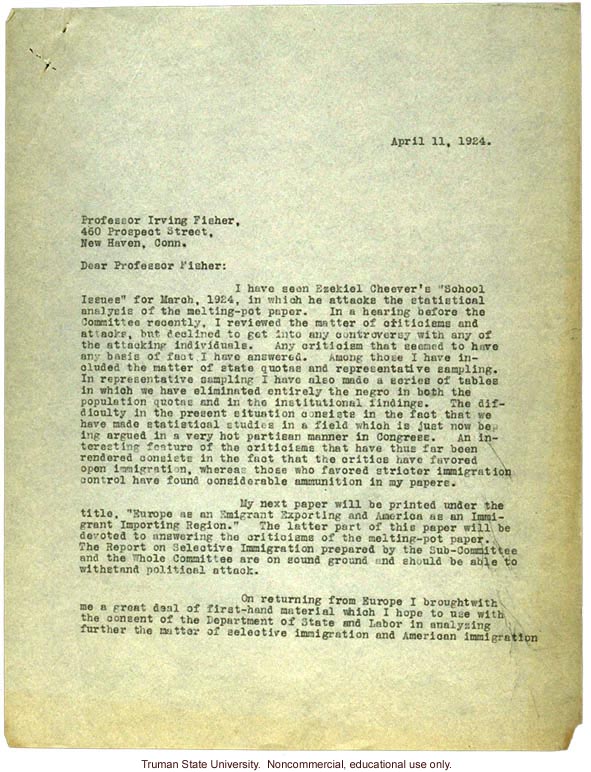H. Laughlin's letter to I. Fisher in response to E. Cheever's criticisms of Laughlin's views on immigration

H. Laughlin's letter to I. Fisher in response to E. Cheever's criticisms of Laughlin's views on immigration
1172. April 11, 1924. Professor Irving Fisher, 460 Prospect Street, New Haven, Conn. Dear Professor Fisher: I have seen Ezekiel Cheever's "School Issues" for March, 1924, in which he attacks the statistical analysis of the melting-pot paper. In a hearing before the Committee recently, I reviewed the matter of criticisms and attacks, but declined to get into any controversy with any of the attacking individuals. Any criticism that seemed to have any basis of fact I have answered. Among those I have included the matter of the state quotas and representative sampling. In representative sampling I have also made a series of tables in which we have eliminated entirely the negro in both the population quotas and in the institutional findings. The difficulty in the present situation consists in the fact that we have made statistical studies in a field which is just now being argued in a very hot partisan manner in Congress. An interesting feature of the criticisms that have thus far been rendered consists in the fact that the critics have favored open immigration, whereas those who favored stricter immigration control have found considerable ammunition in my papers. My next paper will be printed under the title, "Europe as an Emigrant Exporting and America as an Immigrant Importing Region." The latter part of this paper will be devoted to answering the criticisms of the melting-pot paper. The Report on Selective Immigration prepared by the Sub-Committee and the Whole Committee are on sound ground and should be able to withstand political attack. On returning from Europe I brought with me a great deal of first-hand material which I hope to use with the consent of the Department of State and Labor in analyzing further the matter of selective immigration and American immigration
- ID: 11151
- Source: DNALC.EA


